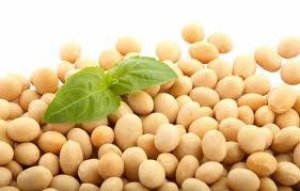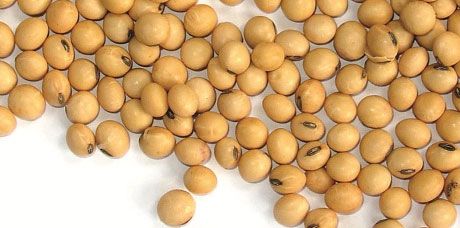
All iLive content is medically reviewed or fact checked to ensure as much factual accuracy as possible.
We have strict sourcing guidelines and only link to reputable media sites, academic research institutions and, whenever possible, medically peer reviewed studies. Note that the numbers in parentheses ([1], [2], etc.) are clickable links to these studies.
If you feel that any of our content is inaccurate, out-of-date, or otherwise questionable, please select it and press Ctrl + Enter.
Soybeans soaked in water have high protirac activity
Last reviewed: 01.07.2025
 ">
">Soybeans soaked in water have every chance of becoming the newest source of a substance with high anti-cancer activity, which is currently obtained by a difficult and time-consuming industrial process. Details of the corresponding research can be found in an article published in the Journal of Agricultural and Food Chemistry.
About 10 years have passed since it became known that soybeans contain a significant amount of protein that inhibits the synthesis of serine protease BBI, exerting a cytostatic effect and restraining mitotic cell division. It is clear that such properties are in high demand in medicine; drugs with a cytostatic effect are used in the treatment of oncological, autoimmune and serious allergic diseases, and also to prevent rejection reactions after transplants. In the case of the BBI protein, the first promising results of medical research appeared at the beginning of the last decade.
One of the fascinating facts about soy and BBI protein is that it is this protein, consumed in large quantities by the Japanese, that may be responsible for the incredibly low cancer mortality rate in the country. It is just a pity that today's methods for extracting BBI protein from soybeans take a very long time and involve the use of very harsh chemicals.

Scientists from the Missouri Institute (USA) have managed to create a new, surprisingly primitive technology for extracting BBI protein from soybeans that does not require the use of any chemicals at all. It is enough to keep the beans in warm water at 50 to cause a natural release of a large amount of BBI protein into the water, from which the protein is very easy to extract. Everything ingenious is simple: how could you subject beans to expensive chemical treatment for 10 years if you can cope with this using elementary water?
In vitro studies were conducted to test the effectiveness of the protein isolated in this way, showing that the BBI protein obtained using the new method stops the division of breast cancer cells.

 [
[